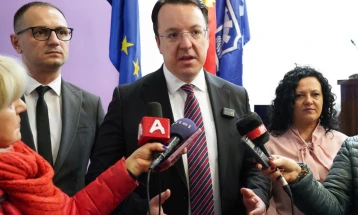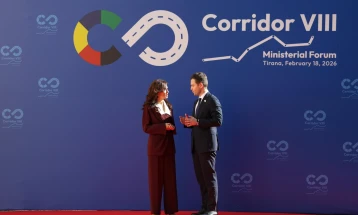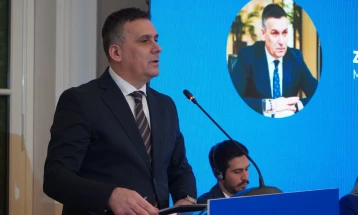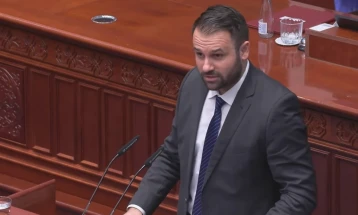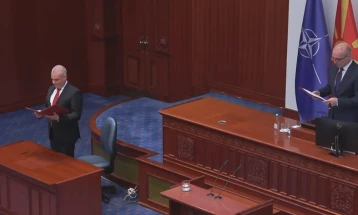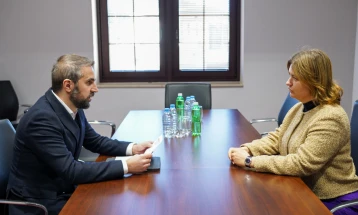Fajon: North Macedonia in EU by 2030 a realistic goal
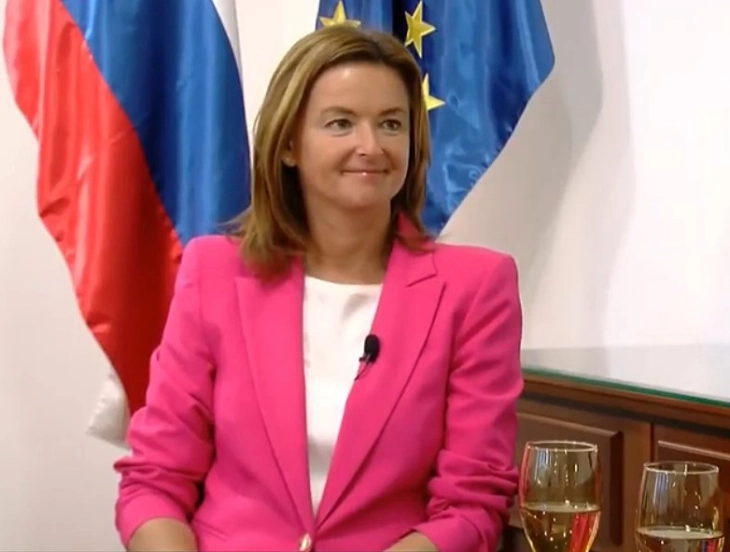
Skopje, 20 October 2022 (MIA) – I sincerely believe that by starting the EU accession negotiations, North Macedonia is on the path of reforms and hard work that will lead the country into the EU by 2030, says Slovenian Foreign Minister Tanja Fajon.
FM Fajon told Sitel TV the very fact that the country has started the membership talks is a historic step.
She extends congratulations to North Macedonia for its courage because it was not simple to accept the French proposal over the start of the EU accession negotiations but the country did the only right thing.
“I guarantee, as does Slovenia, that bilateral issues will not be part of the accession negotiations. I wish that the opposition, the ruling authorities and the society in North Macedonia recognize that the path to the Union is the only path that guarantees solidarity, solid values and well-being of people,” says Fajon.
She adds that Slovenia’s strong support is guaranteed in eliminating bilateral issues and loss of identity or language.
“This week, North Macedonia will sign the Frontex agreement, which clearly reads ‘Macedonian language’. Therefore, the fear that the country is losing its identity is unfounded,” notes Fajon.
The screening period has started, the FM adds, and the country must stick to the timeframe.
“I am aware of the requirement for the constitutional changes and the need for political agreement. I sincerely hope that the opposition and the coalition will have the courage, because this is not about politics it is about the country’s future,” says Fajon.
On Skopje-Sofia relations, she says Bulgaria will always be North Macedonia’s neighbor and that is why politics must be responsible in seeking solutions that do not endanger relations among people.
“Both sides should reach mutual consent on all aspects. Provocations, including the opening of Bulgarian clubs, leading to discord among people are unacceptable. Slovenia has neighbors, which it has bilateral open issues with but we want to find solutions, because this benefits the people,” says Fajon.
According to her, moves to change or interpret history in a different way, as well as moves that change a part of one society is unacceptable.
“There are many challenges for Bulgaria, for North Macedonia, for the region, and we should aspire to find solutions that are acceptable for everyone and not cause disputes, tensions or divisions. When it comes to the opening of Bulgarian clubs, I know that the Parliament recently took an important decision and hope that it will be possible to avoid names in the future that the public considers as provocative,” says Fajon.
The EC report, she adds, is critical in the part related to the rule of law and independent judiciary, and the state will have to work hard on this aspect.
“Responsible policies are there to implement reforms and the country has done a lot of good things as of late. The goal it has set itself of joining the EU by 2030 is realistic, provided both sides work with sincerity and diligence,” notes Fajon and underlines that North Macedonia is an important player in the region’s stability.
